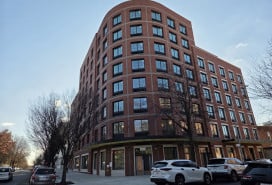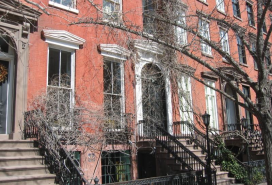Why you probably can't turn your co-op into a condo (and what to do instead)

Updated 4:30pm. For years now, the price gap between co-ops and condos has been widening. Need some dramatic proof? In 2014, the average sales price of a condo was $2.4 million, a 21 percent jump from 2013, while the average co-op sold for $1.27 million, a negligible 1.7 percent increase from the previous year, per CityRealty's end-of-year reports. While this difference is partly because of seven-figure sales at luxury towers like One57 that skew the average, as Jonathan Miller told us earlier this year, a condo would still fetch about 10 percent more than an equivalent co-op.
Condos have advantages that might appeal to some frustrated co-op owners: the relative speed of buying and selling; the ability to sublet; and no overbearing board conducting interviews and dictating behavior. Plus, condos are convenient if you're looking to sell in a hurry. There's a wider range of prospective buyers, and Mortgage Master loan officer Peter Lucia tells us that the average condo sale takes 45 days from contract signing to closing, whereas the average co-op sale takes 75 days because of the board review process. Qualities (and numbers) like these have led some eager brokers to encourage co-op buildings to convert to condos, and for certain co-op owners, it can seem like a no-brainer.
But you rarely hear about buildings actually going through with this, and with good reason. "It takes a pretty exceptional set of circumstances to justify that kind of conversion," says Dean Roberts, a real estate attorney with Norris McLaughlin and Marcus, noting that a client recently came in asking about the process. "You have to be careful what you wish for when you want it both ways," he adds. "People want to be able to sell and be flexible, but they don't want their neighbor to do it."
If this is something you're considering, there are significant hurdles, namely:
- Paying upfront expenses: While a condo conversion could raise the value of your apartment in the long term, short-term costs often deter buildings. Most notably, the co-op's underlying mortgage would need to be paid off in full, a cost that would be distributed among the shareholders. "It goes from being a building obligation to an individual obligation," says Roberts.
- Refinancing: On top of that, every single shareholder would have to refinance, swapping in their "share loans" (the type of mortgage you get when buying a co-op unit) for a mortgage on their newly-converted condo. "There’s a mortgage on the building but there are presumably loans on the stocks and lease," says real estate attorney Neil Garfinkel, referring to each individual apartment owner's financing. "It could be done, it’s just that there are so many moving parts and competing interests that it makes it very difficult." To add to the complication, shareholders who've been in the building for years (and seen their property value go up exponentially) may face major capital gains taxes when they trade in their shares for a deed, as the Observer has reported.
- Getting everyone on board: And then, of course, there's the question of convincing the neighbors—you'd need a majority of the building's support in order for a conversion to go through. While added property values might be tempting to some, the stability of a co-op is the big priority for others. "People in co-ops like the fact that there aren't a lot of renters in the community," says Habitat Magazine Publisher and Editor-in-Chief Carol Ott. "There may be an individual shareholder who wants more flexibility, but I haven't run across a board who thinks, 'Our life would be made easier if we were a condo.'" Tricky finances aside, notes Garfinkel, "the biggest issue is just the coordination of having everyone get on the same page and agree to participate in this whole process."
Rather than undertaking a full-scale conversion, there are options to make the building friendlier to condo buyers:
- Lowering the down-payment bar: Plenty of co-ops across the city have been loosening certain restrictions in hopes of attracting a wider range of buyers. "One building used to require a 50 percent down payment, and reduced it so more young people could move in," says Ott. "Now there are more families."
- Cutting the red tape: Boards have also started streamlining the application process—only requiring one reference instead of two, for instance—and in some cases, loosened the policy on sublets, though Roberts notes, "that depends on the mood of the board."
Related:
From Brooklyn 'creep' to dog-friendly digs, a real person's guide to housing in 2015
You might want to buy a co-op now—before they go extinct
9 curveball co-op interview questions (and how to answer them)
Ace your co-op board application: 14 successful real-life reference letters

























